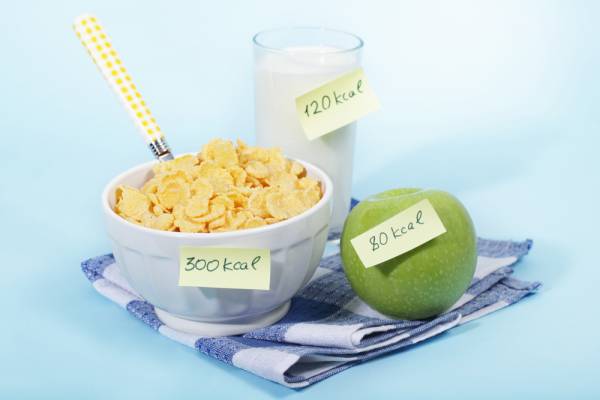Often it’s an uphill battle and not worth the time to argue – especially on the Internet. And what I’m referring to here are the many controversies and opposing philosophies that exist in the strength-fitness-nutrition industry. Who is right? What actually works? Is there peer-reviewed research to support it? There are many legitimate questions that are dangling out there.
- Lift fast or slow?
- High carbs or low carbs?
- High intensity or low intensity?
- Heavy resistance or light resistance?
- High volume or low volume?
- Is a calorie a calorie or does it depend how it is metabolized?
- To stretch or not to stretch?
- Should I believe this or believe that?
- Some research says go right and some says go left. Which direction should I take?
I’m interested in what you think. I understand many of you knowingly are not experts in specific areas and will just be offering an opinion. That’s okay because if something has been working for you then I’d for you to let us know. After all, results are the bottom line. If something has been beneficial, spill it.
I’m going to present some of the debatable issues. This can become emotional for some troopers. I will offer the premise behind each position but it’s up to you to opine. Please respond to any question as you feel. This should be interesting due to the many affirmations you possess. Here we go.
Topic #1: Lift fast or slow?
The premise is that lifting a resistance quickly recruits and trains your fast twitch muscle fibers and thus improves your ability to be more explosive. What amount of resistance, how fast should it be moved, and how do you measure it? Let us know your thoughts in the comments below.
Topic #2: High carbs or low carbs?
Big debate on this topic. How many grams of carbohydrates do you need? Carbohydrates are the body’s preferred fuel for muscle contraction, so what would a low carb diet result in, especially for an athlete? Share your thoughts.
Topic #3: High intensity or low intensity?
How is this applied to the goals of strength and endurance? One pervading philosophy is the belief that low intensity is related to a lower percentage of a one repetition maximum (1RM) in strength training, such as 60%. Therefore, lower intensity is better suited for endurance as compared to high intensity, such as 90%, which is better suited for strength.
Should intensity be measured by the level of effort expended or the amount of resistance used? What is the magical number of repetitions to perform for certain types of development? What is the difference between 60%, 83%, 87%, or 95% of a 1RM? Additionally, what number of repetitions better facilitate those specific types of development (strength, power, endurance) – 5, 10, 12, or 20? What do you think?
Topic #4: Heavy resistance or light resistance?
 The nauseating belief has been that to obtain larger and stronger muscles athletes should use heavier resistance. To achieve “toned” muscles and endurance, athletes should go with lighter resistance. Do your muscles grow better with heavier resistances as opposed to lighter resistances? What type of development do you obtain with different levels of resistances? I’m biting my tongue on this one. Regardless, what is your opinion?
The nauseating belief has been that to obtain larger and stronger muscles athletes should use heavier resistance. To achieve “toned” muscles and endurance, athletes should go with lighter resistance. Do your muscles grow better with heavier resistances as opposed to lighter resistances? What type of development do you obtain with different levels of resistances? I’m biting my tongue on this one. Regardless, what is your opinion?
Topic #5: High volume or low volume?
This is dependent on the mode of exercise. Are we talking running and conditioning? Is it strength training? Sport skill improvement? Running or conditioning volume depends on your event. Longer duration events require a higher volume of training, relatively speaking. Strength training is all about maximum effort. High effort and volume are mutually exclusive terms. Skill practice requires many repetitions of exact replication of skills or contest situations. Explain your volume philosophy in the comments below.
Topic #6: Is a calorie a calorie or does it depend how it is metabolized?
 Calories in versus calories out has been the popular thinking relative to weight gain, weight loss, and weight maintenance. More calories in than out equals weight gain. Fewer calories in than out equals weight loss. Simple stuff. However, research now suggests how your body deals with the complete digestion and assimilation of the types of carbohydrates, proteins, and fats is what dictates what truly occurs. So, is it about calories in versus calories out or does it depend on how micronutrients are metabolized?
Calories in versus calories out has been the popular thinking relative to weight gain, weight loss, and weight maintenance. More calories in than out equals weight gain. Fewer calories in than out equals weight loss. Simple stuff. However, research now suggests how your body deals with the complete digestion and assimilation of the types of carbohydrates, proteins, and fats is what dictates what truly occurs. So, is it about calories in versus calories out or does it depend on how micronutrients are metabolized?
Topic #7: To stretch or not to stretch?
Years ago it was standard procedure to static stretch prior to an athletic contest or sport practice session. We did it and moved on. The present-day mindset, however, is that approach is taboo. Static stretching prior to a critical event will purportedly hinder performance. Your thoughts, please. What do you do before and after your workouts?
Controversy and open discussion are a good thing because they require you to think about the many factors that ultimately must be considered in achieving desired results. Thinking and analyzing makes you smarter, places you in control of your training plan, and leads to more efficient training. It’s a step in the direction of resolution and hopefully puts you on a direct path. If plan A doesn’t work, then it’s time for plan B.
What has worked for you is important. I want to hear what you think. Not only the aforementioned issues, but also other beneficial training topics you are passionate about. Chime in and post to the comments!
Photos courtesy of Shutterstock.






